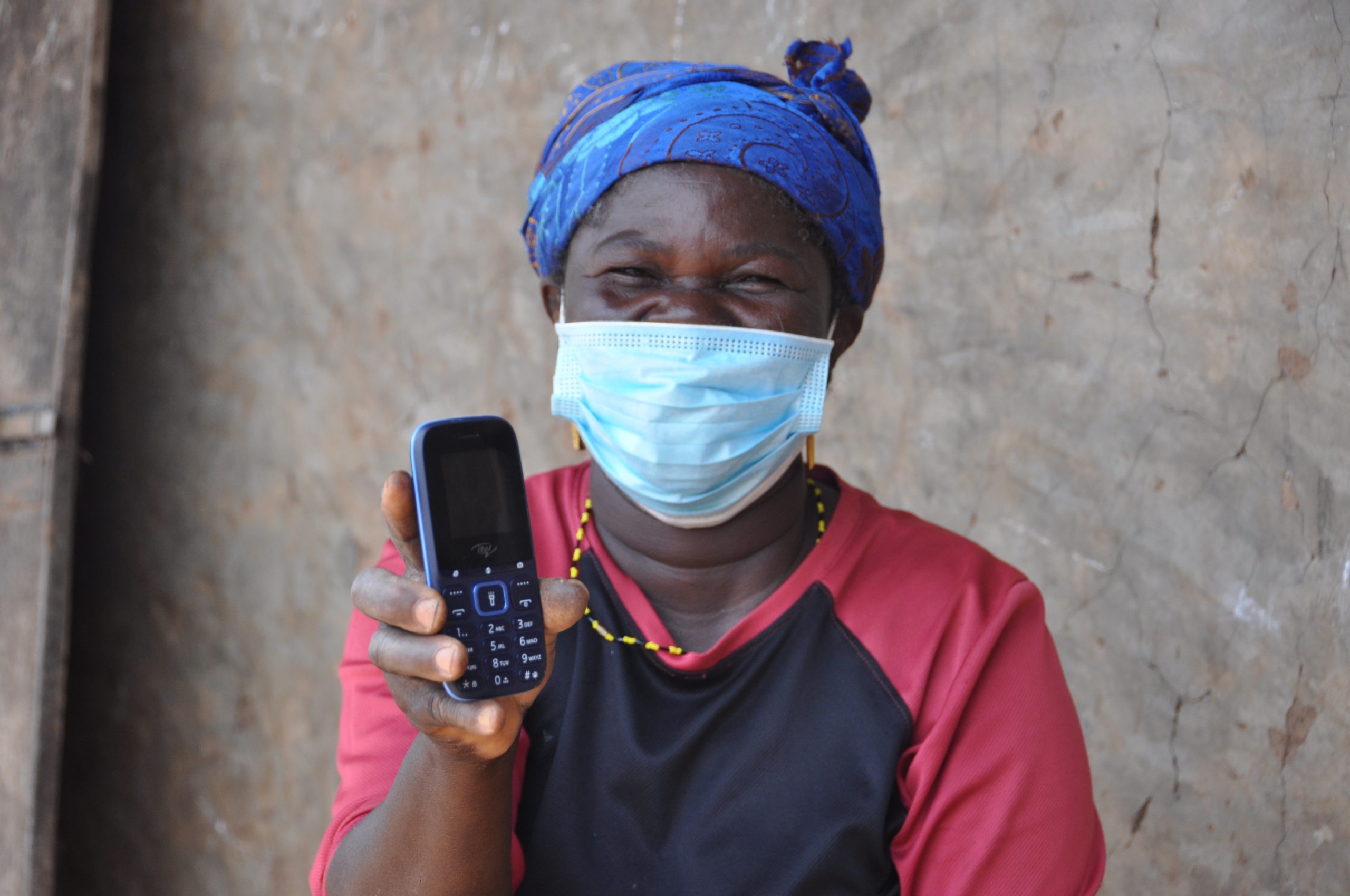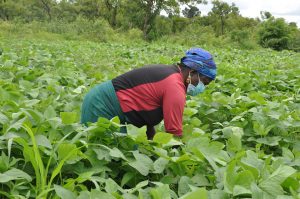
The Feed the Future Ghana Agricultural Development and Value Chain Enhancement II (ADVANCE II) Project distributed 400 mobile phones to women in the Global Food Security Strategy zone of influence in the Northern, North East, Upper East, and Upper West regions, in an effort to empower women and their leaders to access digital resources to mitigate disruptions caused by the COVID-19 pandemic.
When Manya Tewanje’s husband passed away in 2011, she was left to tend to their one-acre soybean farm in Dagando, a village located in the town of Yendi in Ghana’s Northern Region. With nine children, three of whom are still in school, Manya had her hands full. “The children are many,” she said. “And I have to struggle to take care of them.”

Manya would typically sell 300 to 500 kilograms of soybean annually, earning about GHS 800, or the equivalent of $137 (US dollars). To supplement her income, she joined a village savings and loan association (VSLA), which allowed her to contribute to a shared savings account with other community members and take out small loans when necessary. It also allowed her to receive share-outs, which are accumulated savings and earnings shared out proportionally to the amount that each member has saved throughout the agreed cycle. Through these share-outs and loans, Manya launched a side business selling pito, a type of beer made from fermented millet or sorghum.
“I usually borrow from my VSLA group to buy inputs for my farm but decided to start the [beer] business to raise more income to support my children’s education,” she said.
Broken Communications During COVID-19
When the first cases of SARS-CoV-2 occurred in Ghana and the government enforced restrictions, Manya panicked because most of her children worked or attended school in Kumasi, Accra, or Cape Coast. The three who attended school returned home after their schools closed, but the others remained in the busy capital city of Accra. Manya worried that they could get infected and she would be unable to reach them.
The Feed the Future Ghana ADVANCE II Project, which is funded by USAID and implemented by ACDI/VOCA, was set to end in April 2020. When the pandemic hit, USAID extended the project until 2021 to continue to support smallholder farmers and agribusiness owners as they face COVID-19 disruptions. This includes supporting activities and measures, such as mobile money, that reduce the risk of infection and transmission.
Mobile Money and Connectivity
In September 2020, Manya received a mobile phone — the first she had ever owned — through the Feed the Future Ghana ADVANCE II Project. She also had the opportunity to take part in a training program on digital payment platforms, which are helpful in reducing the amount of contact time and risk associated with in-person transactions. The Feed the Future Ghana ADVANCE II Project also taught her how to digitally access messages related to COVID-19 safety, agriculture, and weather provided through an interactive voice response system. Manya was one of two women selected from her VSLA to attend the training.
“I was very happy because I had never been selected to attend any meeting outside my community, and I didn’t even know I was going to get a phone,” Manya said. Before, she had to ask neighbors to place calls to her children. And because she also relies on financial support from her brothers in Accra, Manya also had to rely on her eldest son to collect the money. Sometimes, that meant waiting weeks.
“Now I can easily call my children if anything happens, and I will be able to send and receive money from my brothers directly,” Manya said.
During COVID-19, the Feed the Future Ghana ADVANCE II Project is providing relief to smallholder farmers like Manya through its outgrower business networks in the Northern, North East, Upper East, and Upper West regions by promoting the use of digital tools and services, including mobile money to limit physical contact and the spread of the virus.
Learn more about the Feed the Future Ghana Agricultural Development and Value Chain Enhancement II (ADVANCE II) Project.
Learn more about our work in Ghana.








